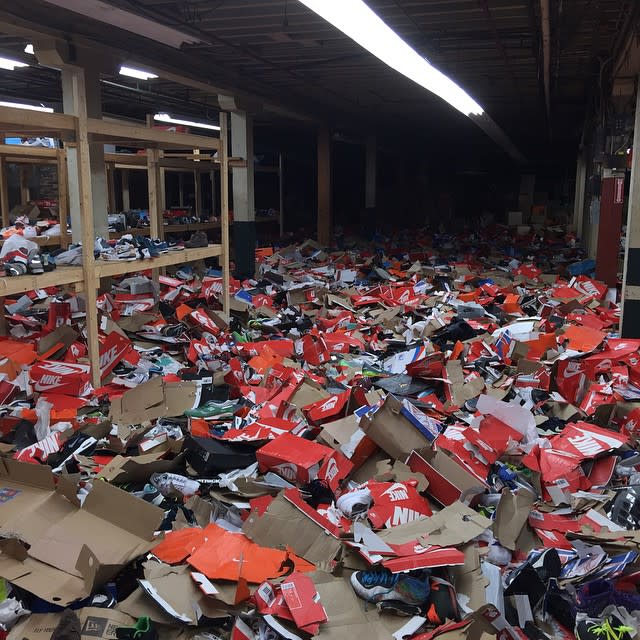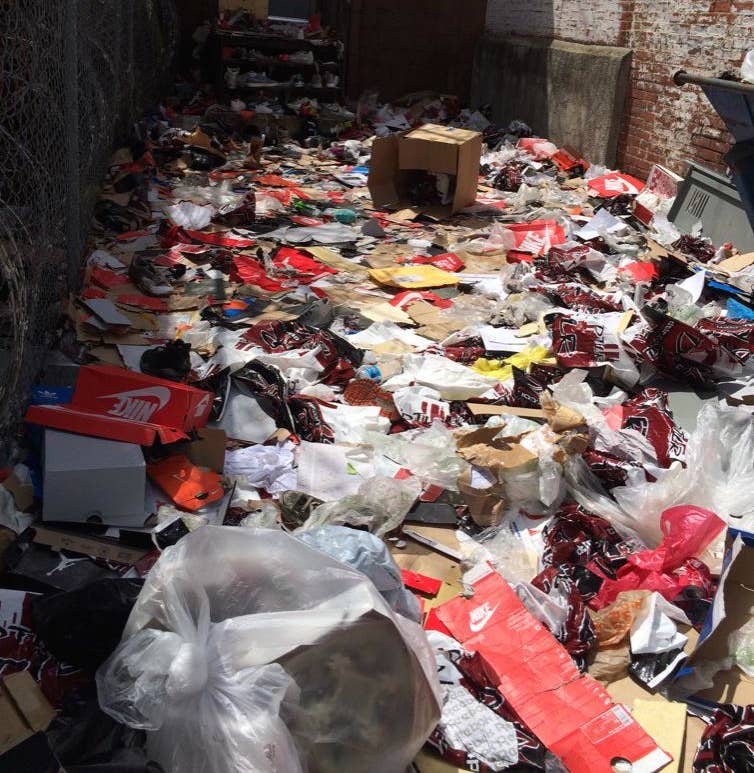
The unexplained death of Freddie Gray, who was in police custody at the time, caused a ripple of intense riots in Baltimore last night after the young man was laid to rest. In the aftermath of the destruction, local sneaker stores were left completely destroyed. Their storefronts were ripped to pieces, with glass windows shattered and fixtures ripped from the walls. The majority of the merchandise was looted, and the sneakers that were left behind were deemed unsellable — ravaged from the chaos that ensued during the evening.
Some of the smaller businesses might not have the resources that we have, so they’ll never come back — jeff bowden
At the center of the riots was Shoe City, a chain of Baltimore-area stores, that had seven locations affected and is still expecting more damage to occur. "[The rioting] is still happening — not to the extent of last night, but we have stores that are waiting to get boarded up," Shoe City President Greg Greenberg said. "People are still going in to some of [the stores], and they are supposed to start again pretty soon."
1.
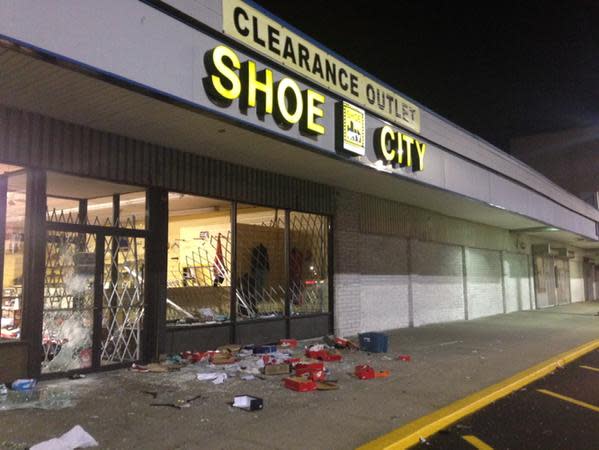
Another retailer that received heavy damage last night was DTLR, who has 104 locations in the U.S., which had five stores looted. The store located on Pennsylvania Avenue was lit on fire and caught flames. "Our stores were completely gutted and stripped of everything except the mannequins and racks," DTLR Director of Marketing Jeff Bowden said. "It was tough to see it all play out on TV, but the best thing was that no one was hurt. We did a preemptive strike and got everyone out of the stores when we thought things were going to go bad."
For Greenberg, who is working at his family's business, this isn't the first time that Shoe City has seen disaster take place. "We’ve been around since 1949, and I’m the third generation of my family to work here," he said. "I was speaking with my grandfather this morning, he’s 88 and he’s crying. He went through this 45 years ago and he’s a little more sensitive than I am."
2.
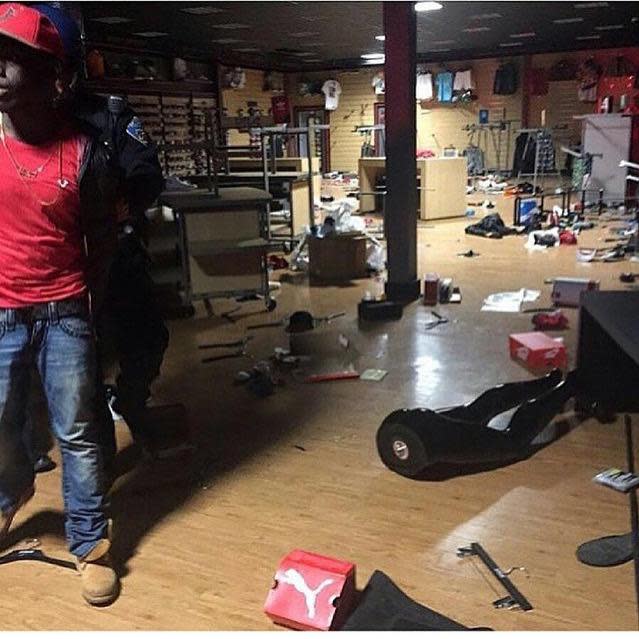
DTLR and Shoe City weren't the only sneaker stores who sustained significant looting.
Sportsmart, a mainstay in the Baltimore sneaker scene, shared on social media what had happened to its N. Exeter Street location. From the images, it looks like a storm ripped through the shop. Boxes are shredded and sneakers are scattered everywhere. One of the Instagram photos includes the caption, "Good job Baltimore Police Dept.," while another said, "Dear mayor and chief of police, thank you." Sportsmart also posted a surveillance video of looters leaving the store with boxes of sneakers in hand, with the hopes of finding the identities of the men in question. That video's caption read, "Do you recognize anybody?" We reached out to Sportsmart for an official comment but have not heard back yet.
3.
Both DTLR and Shoe City have estimated the total amount of damage to be in the millions for each of the retailers. For Greenberg and Shoe City, they're going to wait until everything calms down in Baltimore before they start to rebuild. DTLR knows it's going to be a long process for everything to go back to normal, and the retailer knows from a recent experience — it has a store in Ferguson, Mo., the city where the death of Michael Brown, an 18-year-old who was killed by police officer Darren Wilson, occurred. "That store was looted and it took us somewhere between 30 and 60 days to rebuild," Bowden said. "Now we have to multiply that situation by five or six locations. It’s not going to be weeks, it’s going to be months before everything can get put back together."
One advantage that DTLR has over the independent businesses that were decimated is that it's a chain with resources at its disposal. "Some of the smaller businesses might not have the resources that we have, so they’ll never come back," Bowden said. "A lot of times, it takes years and years for communities to rebuild from this type of thing."
It's one thing to reupholster the inside of a retail store, but it's completely different process to get all of the stolen merchandise back. "It’s not like you can call Nike and Jordan up and say you need X, Y, and Z," Greenberg says. But he's found that the manufacturers have been understanding of his store's situation. "We’ve talked to pretty much most of [the brands] and they’re supportive of anything we need. They’ll help us find product in the next few days to get situated," he said.
4.
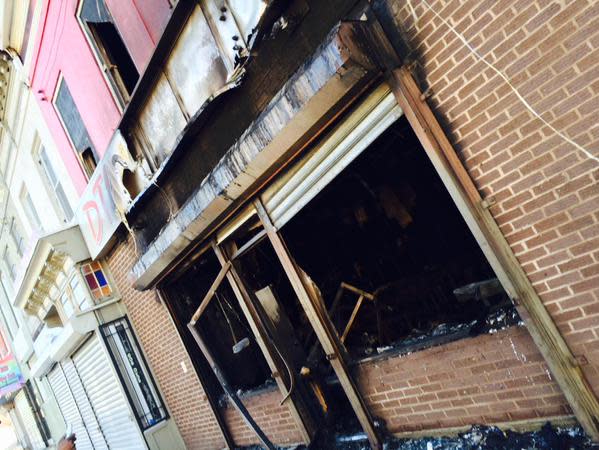
At the heart of this issue, though, isn't just what happened on Monday or what will happen today. It's how Baltimore will face its future in a city that just experienced a devastating social eruption. While some could have a pessimistic view of what tomorrow holds after these riots have ended, Greenberg and Bowden remain optimistic that good days are ahead in Baltimore. "I think this will make the city stronger. I think it's unfortunate that this had to take place for cities to unite and stand together," Greenberg said.
And as Bowden adds, "It's part of our culture to give back to the community, and nothing is going to steer us away from that. We'll continue to move forward."
Matt Welty is a staff writer for Complex, you can reach him on Twitter if you'd like to add to this story.
5.
